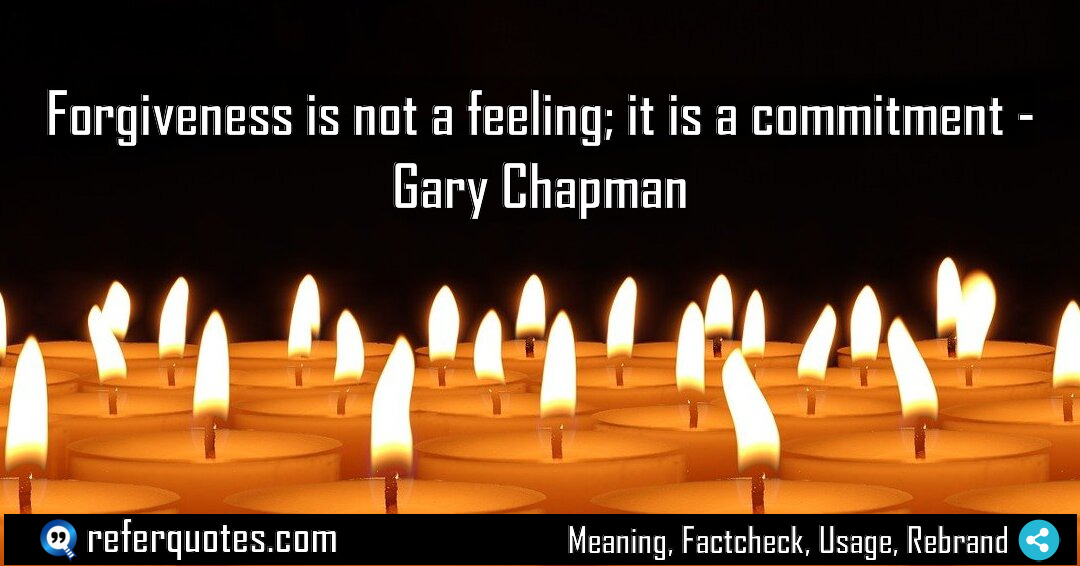Forgiveness is not a feeling; it’s a commitment you actively choose. This simple shift in perspective is absolutely transformative for relationships. It moves you from being a victim of your emotions to being the architect of your own peace.
Share Image Quote:Table of Contents
Meaning
At its core, this quote means that forgiveness is a deliberate decision, not an emotional state you passively wait for.
Explanation
Here’s the thing we all get wrong. We think we have to *feel* ready to forgive. We wait for that wave of benevolent, warm feelings towards the person who hurt us. And guess what? It almost never comes. That’s because Chapman is spot-on. Forgiveness is an act of the will. It’s a commitment you make to yourself—a promise to not hold the offense against the person anymore, to release them from the debt, even when the memory still stings. It’s choosing a new path forward, regardless of the old, familiar hurt. The feeling of peace? That usually follows the action, it doesn’t precede it.
Quote Summary
| Context | Attributes |
|---|---|
| Original Language | English (3668) |
| Category | Health (243) |
| Topics | commitment (33), forgiveness (25), healing (82) |
| Literary Style | reflective (255), succinct (151) |
| Emotion / Mood | redemptive (2), serious (155) |
| Overall Quote Score | 81 (258) |
Origin & Factcheck
This gem comes straight from Gary Chapman’s massively influential book, The 5 Love Languages, which was first published in the United States back in 1992. You’ll sometimes see similar sentiments floating around, but this specific phrasing is Chapman’s. It’s a cornerstone of his practical approach to making love last.
Attribution Summary
| Context | Attributes |
|---|---|
| Author | Gary Chapman (41) |
| Source Type | Book (4032) |
| Source/Book Name | The 5 Love Languages: The Secret to Love That Lasts (41) |
| Origin Timeperiod | Contemporary (1615) |
| Original Language | English (3668) |
| Authenticity | Verified (4032) |
Author Bio
Dr. Gary Chapman is a pastor/counselor who authored many books such as Five Love Languages which has transformed millions of relationships. He teaches families and couples on how to express love and care in ways that are understood. He holds multiple degrees from Wheaton, Wake Forest, and Southwestern Seminary, he blends scholarship with real-life counselling. For a quick overview of his works, check this Gary Chapman book list and find tips for better marriage, parenting, and personal growth.
| Official Website | Facebook | X| Instagram | YouTube
Where is this quotation located?
| Quotation | Forgiveness is not a feeling; it is a commitment |
| Book Details | Publication Year/Date: 1992; ISBN/Unique Identifier: 9780802412706; Last edition: Revised Edition (2015); Number of pages: 208 |
| Where is it? | Chapter 11: Love and Forgiveness, Approximate page 190, Revised Edition (2015) |
